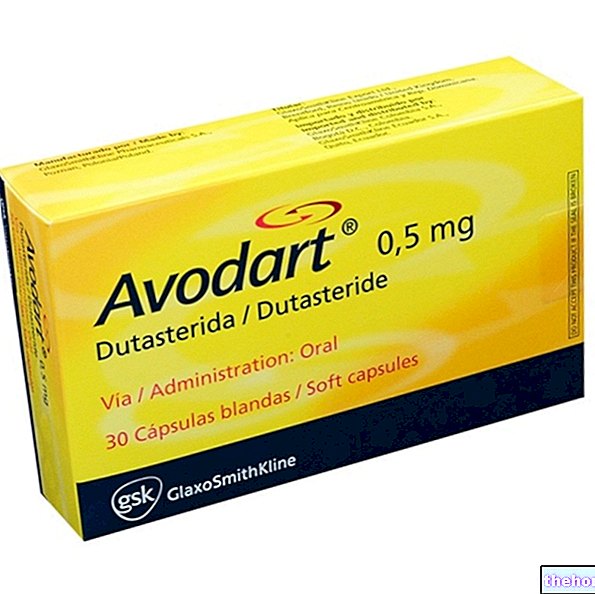KYTRIL ® is a drug based on Granisetron hydrochloride.
THERAPEUTIC GROUP: Antiemetics - Antinauseants - Serotonin antagonists.

Indications KYTRIL ® Granisetron
KYTRIL ® is used in both the preventive and therapeutic phases of acute and delayed episodes of nausea and vomiting induced by chemotherapy, radiotherapy and surgery.
Mechanism of action KYTRIL ® Granisetron
KYTRIL ® is a granisetron-based drug, an active ingredient which, taken orally, is rapidly and totally absorbed by the gastro-intestinal system, and subsequently distributed 65% bound to plasma proteins.
After a half-life of approximately 9 hours, valid for both parenteral and oral intake of the active ingredient, granisetron is metabolized in the liver and subsequently excreted partly in the urine and partly in the faeces.
The antiemetic action of KYTRIL ® is guaranteed by the presence of the active ingredient granisetron which acts as a highly selective antagonist of the 5HT3 serotonin receptors both at the level of the gastrointestinal tract and at the central level, involved in the genesis of vomiting.
The high specificity of action minimizes the onset of side effects, and the antagonizing action against these receptors, allows a particularly effective use in the treatment of nausea associated with chemotherapy or radiotherapy, characterized by an increase in serotonin concentrations at the peripheral level.
Studies carried out and clinical efficacy
1. GRANISETRON NEW FORMULATIONS
Cancer Manag Res. 2009 Dec 16; 2: 1-12.
Use of granisetron transdermal system in the prevention of chemotherapy-induced nausea and vomiting: a review.
Tuca A.
Only recently has the FDA approved the marketing of a new formulation of granisetron, represented by trans dermal patches. Pharmacokinetic studies have shown that this mode of absorption may overlap in pharmacokinetic characteristics and clinical efficacy with tablet formulations, making therapy much easier.
2. GRANISETRON NOT ONLY AN ANTIEMETIC
Acta Anaesthesiol Taiwan. 2008 Dec; 46: 166-70.
Efficacy of granisetron in preventing postanesthetic shivering.
Sajedi P, Yaraghi A, Moseli HA.
The usefulness of granisetron in the post-operative course does not seem to be associated solely with the antiemetic and preventive capacity, but also with the possibility of significantly reducing the post-anesthetic thrill, thus shortening hospitalization times.
3. ANTIEMETIC ACTION OF THE GRANISETRON
Clin Drug Investig. 2006; 26: 203-8.
Efficacy of granisetron for the treatment of postoperative nausea and vomiting in women undergoing breast surgery: a randomized, double-blind, placebo-controlled trial.
Fujii Y, Tanaka H.
In this study the antiemetic efficacy of varying doses of granisetron was tested in women undergoing breast surgery. The data show that a significant antiemetic effect can be observed already at doses of 20micrograms / kg of granisetron, and as higher doses. , are evidently not associated with an improvement in the therapeutic efficacy of the drug. The minimum effective dose also seems to have no clinically relevant side effects.
Method of use and dosage
KYTRIL ® 1 mg coated tablets of granisetron; 0.2 / ml oral solution of granisetron; 3mg / ml - 1mg / ml - 3mg / 5ml solution for intravenous use of granisetron; granisetron 3mg / ml solution for injection for intramuscular use:
the recommended dose useful to reduce the emesis associated with chemo or radiotherapy is that of 3mg of granisetron taken in the form of a solution for injection (if intravenously with slow infusion), before starting cytostatic therapy. In case the sensation of nausea, and relative vomiting were present, it would be advisable to extend the therapeutic protocol up to the maximum daily dose of 9mg.
As for the tablet formulation, the recommended dose is 1 mg twice a day, or two mg once a day, to be extended until the seventh day following therapy.
Doses drop significantly when KYTRIL ® is administered with the aim of reducing nausea and vomiting associated with surgery.
In any case, the correct formulation of the dosage should be carried out only by the doctor, based on the physiological and clinical characteristics of the patient.
Warnings KYTRIL ® Granisetron
Like all antagonists, even selective, of serotonin receptors, the granisetron contained in KYTRIL ® is able to reduce the motility of the intestinal segment, potentially aggravating the clinical conditions of patients suffering from intestinal obstructions and obstructions.
Although granisetron only slightly modifies the conductivity characteristics of the myocardium, alterations such as lengthening of the QT interval or the onset of arrhythmias and conduction disturbances can be significantly accentuated in patients with cardiovascular diseases.
The various formulations provided for KYTRIL ® may contain sorbitol and lactose, thus resulting dangerous for individuals suffering from fructose intolerance, glucose / galactose malabsorption or lactase enzymatic deficiency.
The presence of headache, dizziness and drowsiness following the intake of granisetron, could reduce the patient's normal perceptive abilities, making the use of machinery and driving vehicles dangerous.
PREGNANCY AND BREASTFEEDING
The absence of clinical trials relating to the experimentation of granisetron in pregnant women does not allow to understand the safety profile of KYTRIL ® when taken during pregnancy.
In this regard, it is generally not recommended to take this drug during the entire period of pregnancy and the subsequent lactation period.
Interactions
Different pharmacokinetic studies have shown how granisetron can adapt well to the concomitant administration of other active ingredients, especially those commonly used during antiemetic treatments, without significant alterations in the pharmacokinetic and pharmacodynamic properties of the aforementioned drug.
Contraindications KYTRIL ® Granisetron
KYTRIL ® is contraindicated in case of known hypersensitivity to one of its components or in case of pregnancy and lactation.
Undesirable Effects - Side Effects
The clinical trial has associated with the intake of KYTRIL ® even at therapeutic doses, the appearance of alterations of the nervous system, especially headache and drowsiness, general disorders such as asthenia, and disorders of the gastro-intestinal system such as diarrhea or constipation.
Alterations affecting the cardiovascular system were decidedly rarer.
Only in some cases, pyrexia, increased transaminases and skin rashes have also been observed which tend to spontaneously regress once therapy is suspended.
Note
KYTRIL ® is a drug that can only be sold by prescription.
The information on KYTRIL ® Granisetron published on this page may be out of date or incomplete. For a correct use of this information, see the Disclaimer and useful information page.




























